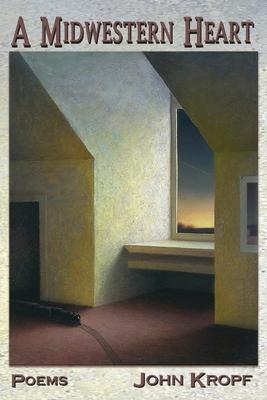In John Kropf's first collection of poetry, the images may come from the Midwest, but the sentiments are universal. An adult remembering boyhood realizes that we never know when it will be the last time we play in the yard. "Hometown" assures us that memories never fade: they are "right where I left them." Even what we discard carries its weight: in "The End of History," trash becomes our "discarded histories." In subsequent sections of the book, the images go farther afield. "Lost City" shows us the point of view of the last inhabitant who leaves, "turning that city into a tomb," but also that of the first who declares at sunrise that a "hillside would be a city." There is humor here as well: coffee is a dark redeemer from an exotic land, while feet can save your soul. These free verse poems tell of time, memory, boyhood, and the idea that although the past is gone, it is never lost.-Deborah Fleming, author of Earthrise

In John Kropf's first collection of poetry, the images may come from the Midwest, but the sentiments are universal. An adult remembering boyhood realizes that we never know when it will be the last time we play in the yard. "Hometown" assures us that memories never fade: they are "right where I left them." Even what we discard carries its weight: in "The End of History," trash becomes our "discarded histories." In subsequent sections of the book, the images go farther afield. "Lost City" shows us the point of view of the last inhabitant who leaves, "turning that city into a tomb," but also that of the first who declares at sunrise that a "hillside would be a city." There is humor here as well: coffee is a dark redeemer from an exotic land, while feet can save your soul. These free verse poems tell of time, memory, boyhood, and the idea that although the past is gone, it is never lost.-Deborah Fleming, author of Earthrise